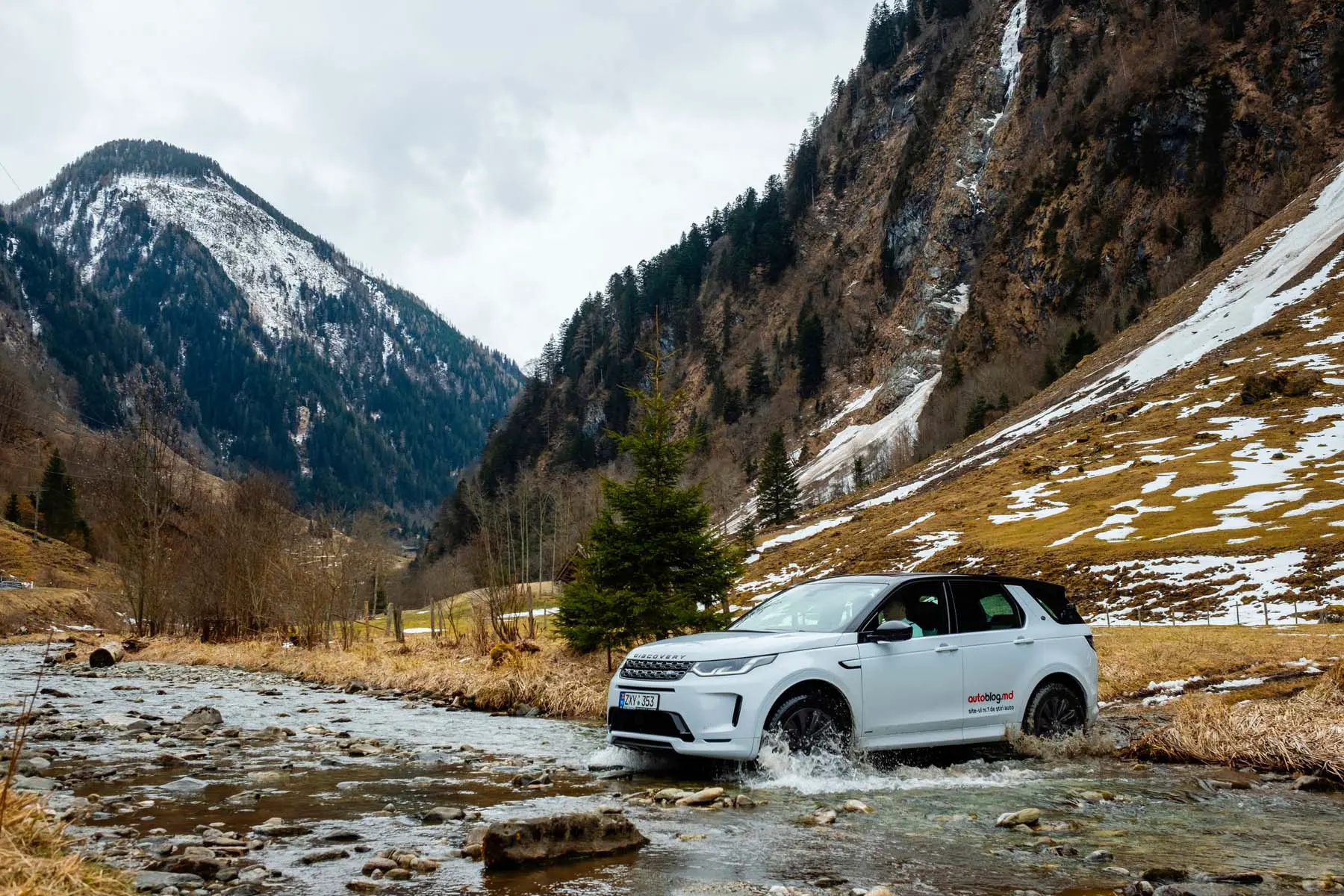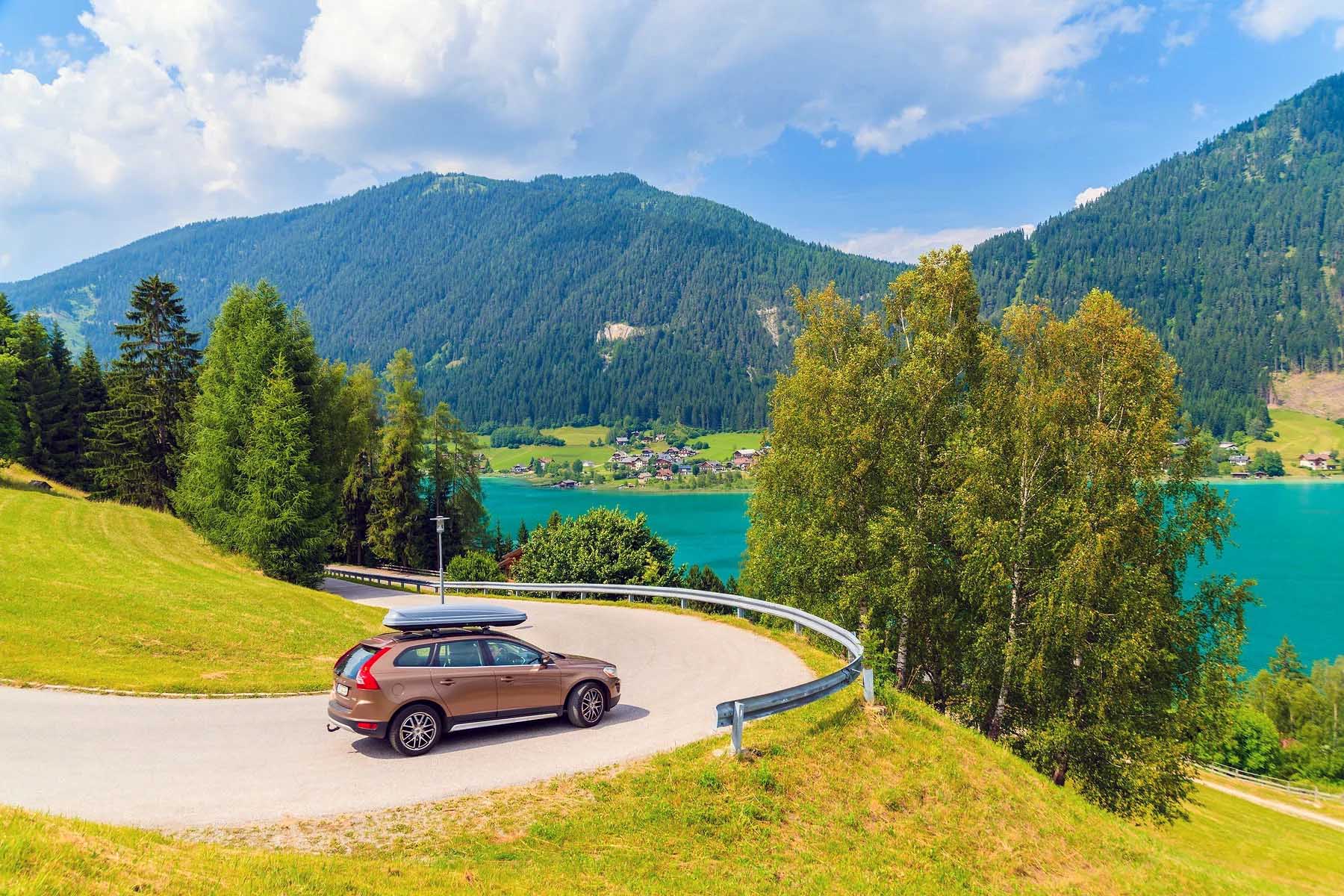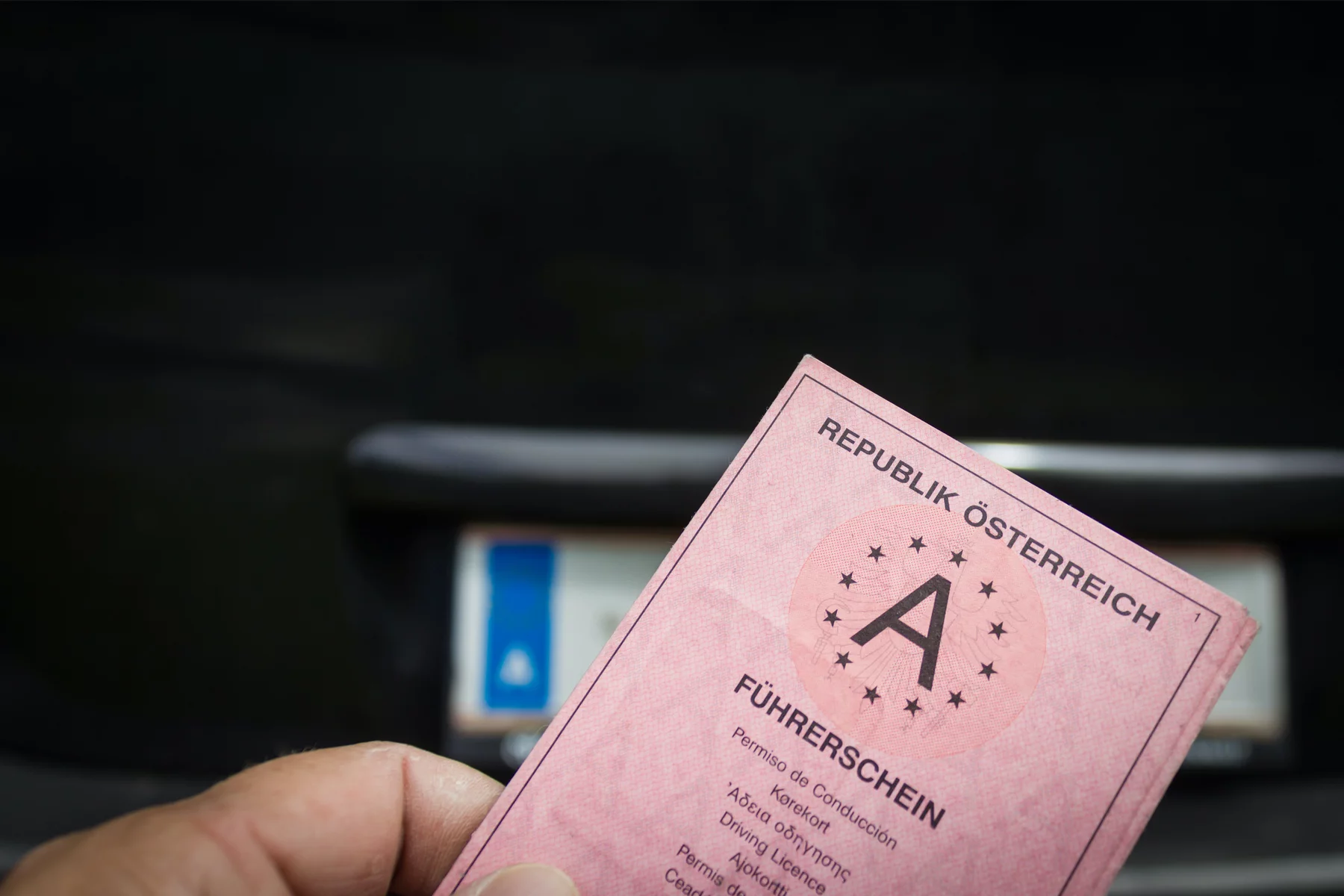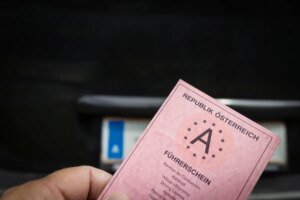For expats moving to Europe, Austria can be an attractive proposition. From the abundance of beautiful places to visit and cultural attractions to top-tier education and healthcare, the country has plenty to offer.
Austria also has a great network of roads and highways that make driving in the country a joy. But first, you’ll need a ride. If you are moving to Austria and planning to buy a car here, this article will help you navigate the process with the following topics:
- Buying a car in Austria
- Who can buy a car in Austria?
- Buying a new car in Austria
- Where to buy a new car in Austria
- Electric cars and hybrids in Austria
- Buying a used car in Austria
- Where to buy a used car in Austria
- Car registration and other paperwork in Austria
- Car costs in Austria
- Importing a car in Austria
- Selling a car in Austria
- Equipment your car needs to have in Austria
- Useful resources
Buying a car in Austria
Owning a car is popular in Austria because it makes it easy to get around. This is especially true for residents living outside of Vienna, who do not have access to the capital’s well-connected public transport system. Although the country’s population is about 8.96 million, there were almost 5 million registered passenger cars in Austria in 2019. Additionally, a total of 371,252 new vehicles were registered in 2021.

When buying a car in Austria, many locals prefer to buy German-produced Volkswagens. As such, it is the most popular car brand in the country. And, the marque’s Golf, T-Roc, Tiguan, and Polo models are the most sought-after cars. However, some residents prefer the Octavia and Fabia models from Skoda, another popular car brand from neighboring Czechia.
The process for buying a car in Austria is similar to that in other countries. As such, most expats in Austria will find it familiar, and easy to manage. The paperwork is largely similar, too.
Who can buy a car in Austria?
You can buy a car in Austria at the age of 18, but you have to have a valid driver’s license. In addition, you need to prove your residency in Austria to register the car and buy insurance. You can do this with a local ID and address.
Buying a new car in Austria
Despite local car prices being higher than in many other EU countries, it can be cheaper to buy a car in Austria than import your own. This is because the import tax and roadworthy certificate you need to import a car can be quite expensive.
To buy a car here, you will need to present several documents. This includes your ID and proof of local residency and address. To begin the process, you will usually do some research online and figure out what cars you like. Then, you can decide if you want to buy through a dealer or private seller and whether you want to organize test drives.

After you have picked a car to buy, you will need to sort out the paperwork and payments. You should have the sale invoice, registration certificates, and a European Certificate of Conformity when you drive away with your new purchase. If you buy through a dealer, you will often put down a deposit on the car first. This can be with a credit card, check, or bank transfer, and then work out a payment plan for the remainder. With a private seller, though, you will often have to pay for everything upfront with a check or bank transfer.
Where to buy a new car in Austria
Car dealerships in Austria
Dealerships are a popular way to buy a car in Austria. This is because there are plenty of dealers throughout the country and many of them offer both new and used cars.
When it comes to new cars, though, you will probably go to an official dealership of the car brand, like Volkswagen or Skoda. Of course, the biggest advantage here is that you can trust the dealer you are buying from and take your time looking at and test driving the car you want. However, dealerships are also a useful option because you can often access payment plans and negotiate better deals such as free options and add-ons. In addition, the dealer will take care of all the necessary paperwork—such as registration—and offer follow-up support and maintenance when you need it.
Buying a car in Austria online
Many people begin the process of buying a car in Austria online because it is a good place to research what cars are available and narrow down the options. While it is possible to find and buy cars online, it is quite rare for the whole process to take place digitally in Austria. Instead, you will usually find a car you want online, then contact the seller. In fact, most locals will want to inspect and test-drive the car before they commit to buying it.
There is a growing number of online portals for new cars where you can see what’s on the market. Online car sales platforms in Austria include:
Electric cars and hybrids in Austria
Although they still account for a minority of cars on the road, electric and hybrid cars are becoming increasingly popular in Austria. In fact, there were 106,457 electric vehicles in Austria as of December 2021. And, 4,416 of these were registered within the previous twelve months alone.

Like in most other countries, the Tesla Model 3 is the most popular electric car in Austria. But, several other European-made vehicles are also popular. As such, you may see the Volkswagen ID3 and ID4, the Škoda Enyaq, the Renault Zoe, the Fiat 500, or the Audi e-tron being driven. However, in December 2021, the electrically-powered Mini Cooper—produced by German manufacturer BMW—saw the most sales in the country.
Buying a used car in Austria
If you are buying a used car in Austria, you will follow a similar process to buying a new one. Some residents prefer to buy used cars because it is often cheaper than buying new. And, because new cars lose a lot of their value as soon as you take ownership, for many people it does not make sense to buy new. Of course, the drawback of buying a used car is that you might not know its entire history. In addition, you may not get the most up-to-date models and may miss out on some newer features.
To start your journey towards buying a used car, you will likely start looking for cars online and narrow down a few options. Then, you will have to contact the seller (whether a private vendor or a used car dealership) and organize to inspect and test drive the cars you are interested in. After you decide on a car, you may want to negotiate the price a little and possibly get an independent inspection. You may also need to check the car’s history through official channels to ensure it is not a write-off and has not been in any bad accidents.
Then, you will have to sort out the paperwork and make the payment. You will need to organize the transfer of ownership and re-register the vehicle in your name. And, you should also ensure you have the European Certificate of Conformity and a sales invoice from the seller. In addition, you will have to get car insurance before you drive away. Finally, you will need to pay for the car. You will probably need to do this with a check, though if you buy from a dealer, credit card payments or bank transfers might be possible.
Where to buy a used car in Austria
Car dealerships in Austria
There are numerous dealerships across Austria, and most of them will have used cars for sale. Because they are the most reliable place for buying a car in Austria, dealerships are often the best way to go, even for used cars. You can visit the previously mentioned sites of AutoScout24 and Automobile.at to begin looking for new cars and contacting dealers.
Buying a used car in Austria from a private owner
Many Austrians turn to the internet to buy and sell used cars. As such, car sales websites are a good place to start when looking to buy a used car in Austria. AutoScout24 and Automobile.at are valuable resources. But, there are plenty of other useful sites to look at, including Ooyyo, autto.at, gebrauchtwagen.at and car4you.
If you go with a private seller, you will have to organize a lot of the paperwork yourself. Though, you will need some input from the seller, too. As such, you should make sure you know exactly what needs to be done and which documents you need so that the seller does not short-change you. You should also make sure you thoroughly inspect the vehicle—and perhaps organize a reliable third-party inspection—to make sure everything is as it seems.
Car registration and other paperwork in Austria
Buying a car in Austria requires a lot of paperwork. As such, you will need to present a lot of documents when you go to register your new purchase. These include:
- Sales contract with your name as the new owner
- Title certificate
- Certificate of approval (only for used cars)
- Roadworthy certificate (for cars older than three years)
- Passport or ID card
- Proof of insurance

Once you have all of this, then you can go to the registration office in your local municipality. You will also have to pay the registration fee of approximately €200. After this, you will receive your new license plates and get the safety check sticker that should be placed on your windshield.
Car costs in Austria
When buying a car in Austria—or anywhere else—you should remember to factor in all the additional costs. This is because the price of the actual car is only the start of the fees you will have to pay to maintain a car and drive it legally.
Of course, you have to pay the registration fee of €200, as well as compulsory car insurance, which ranges from €60 to €150 per month. In addition, you can expect to pay around €8,000 per year for regular inspections and maintenance, as well as €1.7/liter for fuel.

In many cases, you will also have to pay the 20% car tax, and €93.80 for an annual vignette that covers all the required tolls and congestion fees. Remember that these figures are subject to change, so check beforehand to see what you’re due to pay.
Importing a car in Austria
Some expats prefer to import their existing vehicles instead of buying a car in Austria. It is possible, though you should decide whether this is a good choice in your specific circumstances. In some cases, it can be a bit too expensive and complicated to bother importing a car. And, your car may not need all of Austria’s requirements. Still, if you want to do so, here is what you need to know.
Cars with more than 6,000km on them are considered used and subject to different tax and customs formalities than new cars. Either way, you will have to show proof of the car’s value (such as the invoice or purchase agreement), get a T1 consignment note, and file an import/customs clearance declaration. Additionally, you need to pay a 10% customs duty (unless you can present proof of preferential origin from countries like Norway or Sweden). You will also have to pay a 20% import turnover tax and standard consumption tax.
However, if you are importing a car to Austria from within the EU, you do not have to deal with any paperwork or customs formalities. Though, you still need to pay the standard consumption tax.
In addition to all the above, you will need to have the EEC Certificate of Conformity and get an inspection and certificate for roadworthiness. Finally, you must also register your car in Austria within one month and get local car insurance
Selling a car in Austria
Whether you’re leaving Austria or simply want to sell your car, there are several options. First, you could choose to do a private sale by advertising online or through your personal network. But, this will require you to personally handle all the paperwork, including the transfer documents. Secondly, you could sell your car to a dealer. Although you will likely get less than if you sell privately, the advantage is that you can usually sell your car quickly and the dealer will handle most of the details.
You will need to deregister the car from your name and transfer it to the new owner, though there are two ways of doing this. You can do this personally by going to your local registration office with your approval documents, proof of registration, certificate of conformity, then turning in your number plates. However, the new owner can also do this on your behalf by presenting all the above documents, along with a signed proxy form. In addition, you will have to cancel your car insurance.
Equipment your car needs to have in Austria
By law, you have to have certain equipment and documents in your car while driving in Austria. As such, you should always keep a reflective jacket, warning triangle, and first aid kit in your vehicle.
In addition, it is important to keep your driving license and vehicle registration on you while driving. This is because forgetting any of this can result in high on-the-spot fines if you are pulled over by the police.
Useful resources
- Buying a Vehicle in Austria – Austrian government website
- General Information on Own Import of Vehicle – Austrian government website
- Vehicle Registration in Austria – Austrian government website
- Federal Ministry of Finance – Importing a Vehicle for Personal Use







